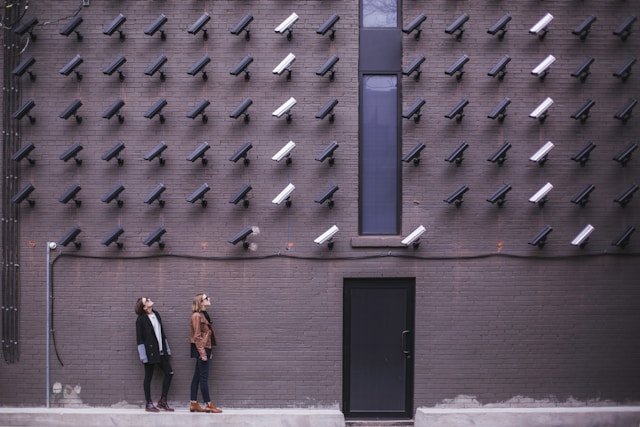The right to privacy: freedom at risk
Freedom has always been at risk. Now, with technological development, it's even more evident. The problem is that many agree to trade freedom for comfort. So dystopian societies like 1984 or Brave New World aren't far from becoming reality; if not, with some nuances, they aren't already.
All societies face the fundamental challenge of balancing individual freedoms with the collective good. Ethics almost never wins the battle against concentrated power.
The violation of rights under the justification of preventing terrorism and organized crime, or in the name of national security, is increasingly common. And while it's true that "bad guys" take advantage of the rule of law in free and democratic societies, it's clear that criminals aren't the only ones who can screw up our lives. One politician who proposes laws that limit our privacy in the name of well-being can cause more harm than a thousand criminals.
In Ma Boyong's short story The City of Silence, there's a phrase that sums it all up:
"...Technology is neutral, but its progress makes a free world freer or a totalitarian world even more repressive."
The same interconnectivity that has allowed us instant connection, work over the internet, increased value and speed of commercial relations, the explosion of the entertainment industry, etc., is now used to spy on and control the population. And no, this isn't something unique to authoritarian regimes (although these go too far).
Under the fallacy that those who have done nothing wrong have nothing to hide, democracies increase excessive surveillance of their citizens. The problem is that it's very easy to corrupt these mechanisms when there are no checks and balances and use them to attack political opponents or the economic competition of favored companies. Privacy isn't about hiding when we do something wrong; it's the right to determine when, how, and to what extent our information is communicated to others. In other words, privacy allows us to protect legitimate aspects of our lives.
However, these aspects are more threatened than ever today. Technology often disrupts the world before laws are created to protect us from its misuse by companies. With connectivity and the rise of digital life (faster, more efficient, and with more traces than analog processes), private issues such as health, beliefs, finances or intimacy are exposed.
The massive collection of data allows governments and corporations to establish policies of media or advertising manipulation, discrimination, or persecution.
The mutability of laws cannot be ignored, since what is legal today may be persecuted tomorrow. There are examples such as Venezuela, which went from a democratic state to a totalitarian state where political dissent is persecuted. Nor can we rule out the fact that many temporary legal provisions end up becoming permanent, or lasting longer than was socially accepted at the time of their implementation.
The lack of privacy also eliminates psychological freedom, causing self-censorship as a result of the panopticon effect. This was very effective in places like the Soviet Union and Cuba; today, with varying degrees of effectiveness, it can be found in regimes like Cuba or North Korea. And in countries like Russia and China. In the United States, the United Kingdom, and the European Union, the ideas of liberty and judicial protection still prevent the panopticon effect.
It is important, then, to understand that privacy as a balancing mechanism between the individual and power is being eroded, weakening the foundations of liberty.
While we've known about Chinese social credit for a few years and were alarmed by everyone, including Western governments, the latter saw a compelling idea to implement. It's true that not all are as technologically advanced as China, with payments based on palm print, iris scans, or large-scale facial recognition tracking, but some nations have taken the first steps.
Russia began its own project to create a digital profile for its citizens. Venezuela implemented the Carnet de la Patria. Japan is expanding the use of the Mimamori system. The United Kingdom is exploring the idea of inserting subcutaneous chips to track criminals in real time, which is always a preliminary step toward extending something to the rest of society. The British are also talking about chips with artificial intelligence capable of predicting crimes (a Minority Report dystopia, here we come).
How can we protect ourselves? Exercise your right to privacy.
- Apply the right to be forgotten.
- Use two-factor authentication.
- Use free and privacy-friendly tools: Firefox with security extensions, alternative search engines like DuckDuckGo, VPN services, encrypted email, or private messaging services (Signal or IRC chats).
- Request services to delete old accounts or online presences like Just Delete Me.
- Participate in workshops on digital security and privacy.
- Boycott or pressure companies that engage in bad practices or sell sensitive private data (health, finance).
- Demand transparency from your government regarding government surveillance policies.
- Advocate for judicial oversight of these programs and for a ban on invasive practices like mass social recognition or social credit.
Every action you take contributes; privacy is not given away: it is defended. Because once eroded, it is very difficult to recover, as surveillance and control end up becoming a business model or a form of domination.
Posted Using INLEO

An interesting article that we should all read due to its current relevance.
Thank you for showing us these solutions!
Thank you for reading.
!BBH
Thank you!
!HUG
This is an incredibly important and timely post, @yecier. 🔐📡 You’ve addressed the delicate balance between technology and human rights with clarity and urgency. Privacy is not a privilege it's a fundamental right and your message highlights just how much of that freedom is quietly slipping away in the digital age. Thank you for raising awareness and sparking conversation around a topic that affects us all 😁✌️
Thank you for reading and for your feedback.
!BBH
You're welcome 😁 and thank you so much for the gift really appreciate. I hope we can become good friends! 😎